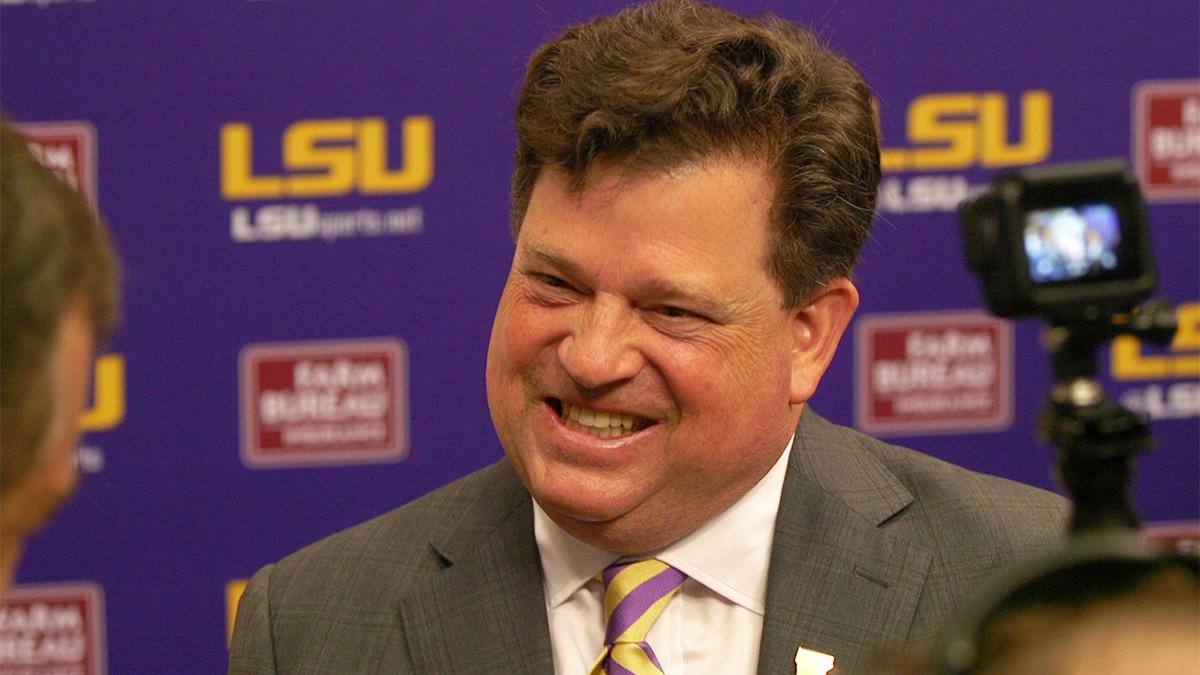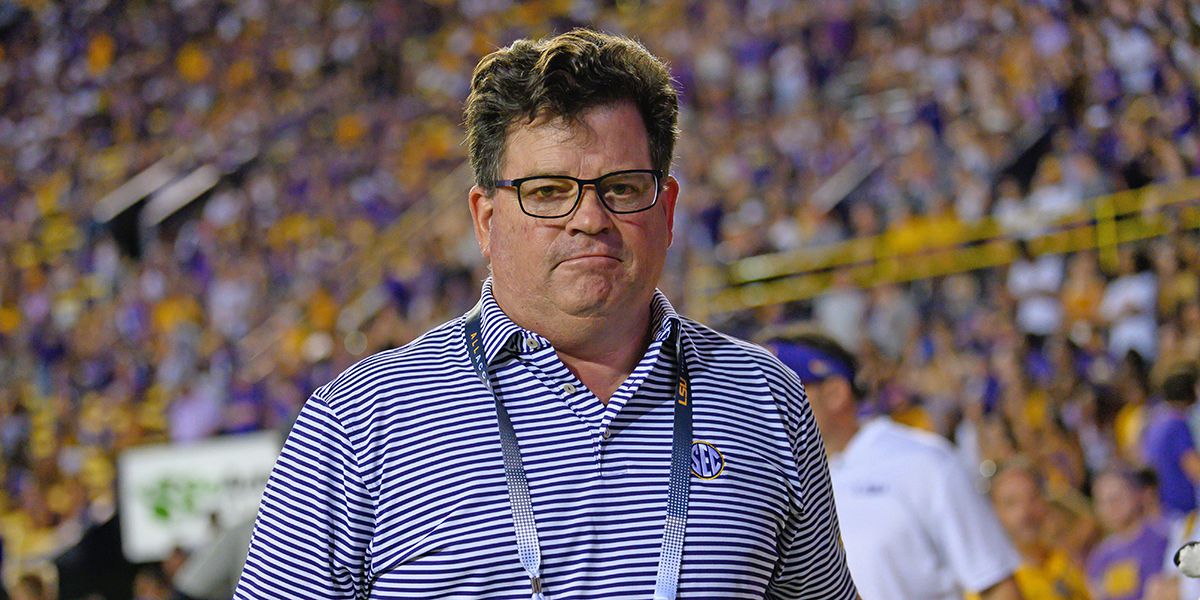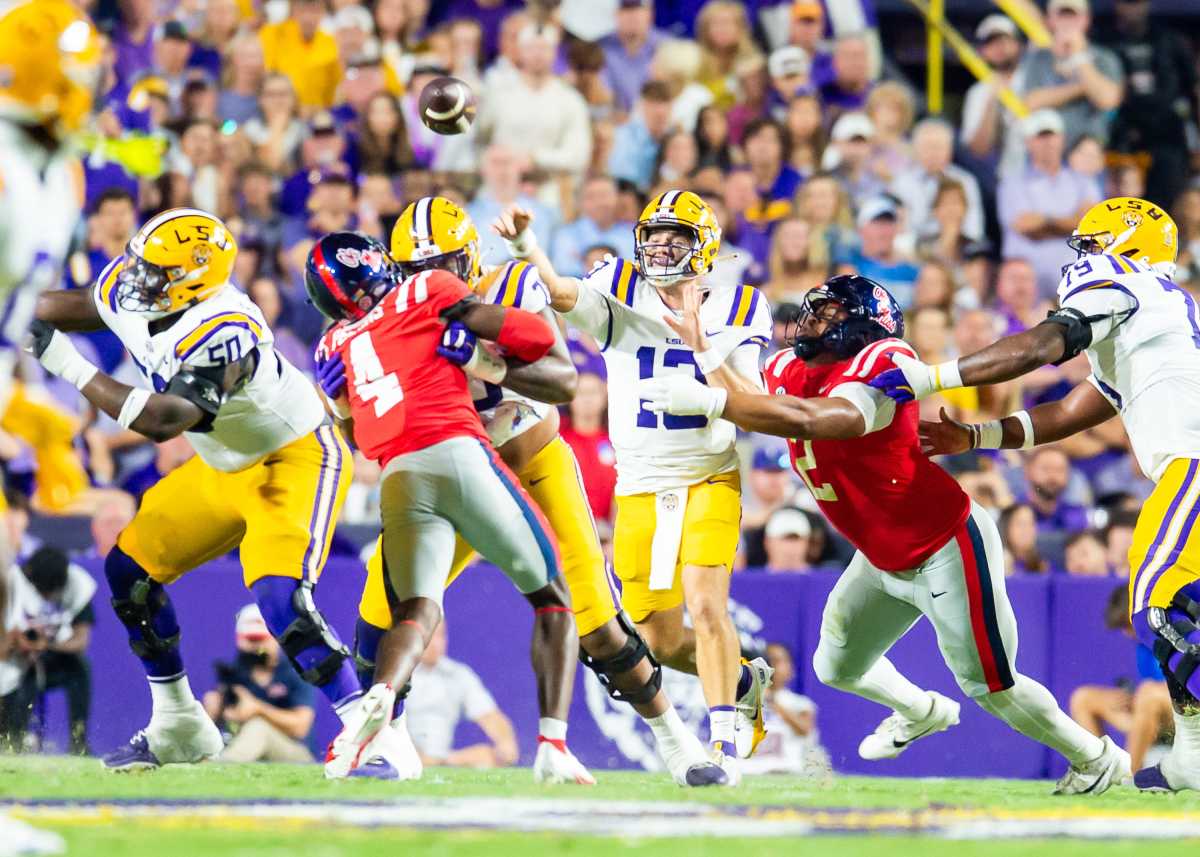When Scott Woodward, the LSU athletic director, was younger, there was a debate that free agency would destroy the NFL. Owners resisted player movement for decades until they were forced to accept unrestricted free agency after losing an antitrust lawsuit in 1993. However, the NFL didn’t crumble; it thrived.

Reflecting on those debates, Woodward thought about the recent changes in college sports after the NCAA and its power conferences agreed to settle three federal antitrust lawsuits on Thursday. Woodward pointed out that the NFL remains highly popular and he believes major college sports will also continue to thrive as schools start paying athletes directly for the first time.
“The NFL changed,” Woodward told The Advocate, “but it didn’t end or decline. I think college sports will experience something similar. It will be different, but we’ll adapt and thrive.”
The settlement requires the NCAA to pay $2.78 billion in damages over ten years, with Division I schools able to pay athletes about $20 million annually in addition to existing scholarships and benefits. The settlement details, including those related to Title IX, NIL, and employment, are still being finalized, but the new system could start in fall 2025.
Woodward expressed cautious optimism about the changes, saying, “I’m most pleased because it will bring some certainty to what we do. While I may not like the change, I see it as a good opportunity for us. Our athletic department has succeeded in the current chaotic environment of NIL and the transfer portal. This success speaks to LSU’s strong brand, and I look forward to the future.”
The new revenue-sharing model will require LSU and other athletic departments to adjust their finances. They’ve invested heavily in salaries and facilities and will now need to allocate funds to pay their athletes. Schools can pay players up to 22% of the average revenue of power conference athletic departments. NCAA president Charlie Baker confirmed that many major schools might allocate nearly 50% of their athletics revenue to players, combining these payments with tuition and other benefits.

LSU, with one of the country’s most lucrative athletic departments, should manage the change. It had the sixth-highest total revenue ($199.3 million) in the nation during the 2022 fiscal year. However, paying athletes will necessitate financial adjustments. In the 2023 fiscal year, LSU athletics would have used 10% of its revenue for player compensation. This would have been the fourth-highest expenditure behind coaches’ salaries, support staff compensation, and operating expenses.
In the 2023 fiscal year, LSU reported $200.4 million in revenue, its highest ever, but spent $199 million, leaving a $1.37 million profit. To cover the anticipated $200 million additional expenses over the next decade, LSU will need to raise funds or cut costs.
The NCAA will withhold approximately $2 million annually from distributions to major conference teams to cover damages owed to athletes who couldn’t receive NIL benefits from 2016-20. This sum is a small part of LSU’s budget but adds to the financial recalculations.
Woodward noted, “The funding will come from various sources, including revenue growth from TV deals, ticket prices, apparel contracts, and multimedia rights contracts. We must also manage our expenses efficiently.”
Offsetting some costs, LSU can use annual Alston payments and potential new scholarships, which can count towards the expenses. LSU already makes Alston payments, and new scholarships from changes in roster sizes and scholarship limits could help.
Athletic departments rely heavily on revenue from tickets, donations, media rights, and sponsorships, mainly from football. LSU football generated over half of the 2023 fiscal year’s revenue, including $40.7 million from tickets, $27.9 million from donations, and $15.1 million from media rights.

LSU will benefit from the SEC’s rising distributions and a new 10-year deal with ESPN, paying $300 million annually for broadcast rights. An expanded College Football Playoff starting a new contract in 2026 will further increase revenue, with SEC and Big Ten schools expected to receive about $20 million annually.
In 2026, LSU can renegotiate its Nike contract, currently valued at $5.75 million annually. LSU receives $1 million in cash and $4.75 million in equipment allowances.
LSU will need to find additional funding sources and make strategic decisions on fund allocation across its 16 teams to stay competitive.
Woodward concluded, “Despite recent chaos, we’ve done very well. Our program has high expectations, and I share those expectations for our future.”
